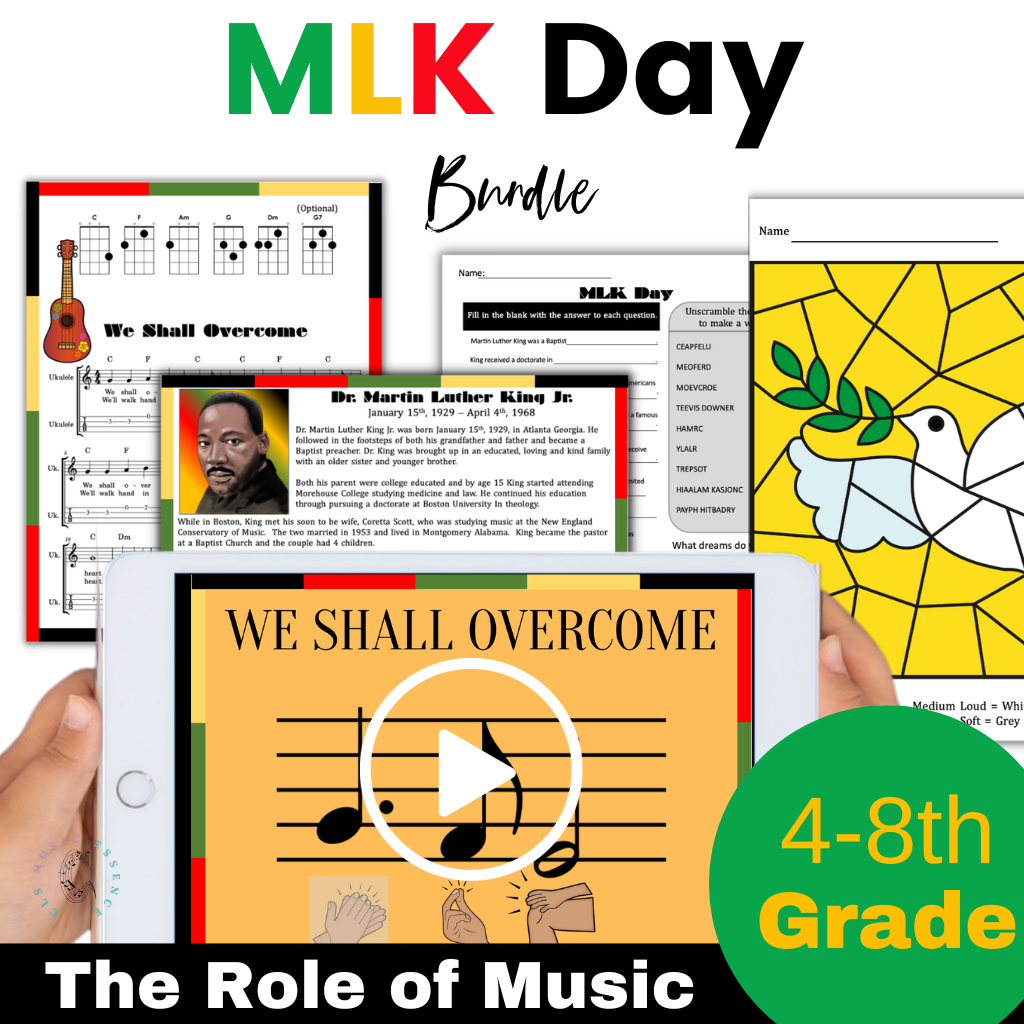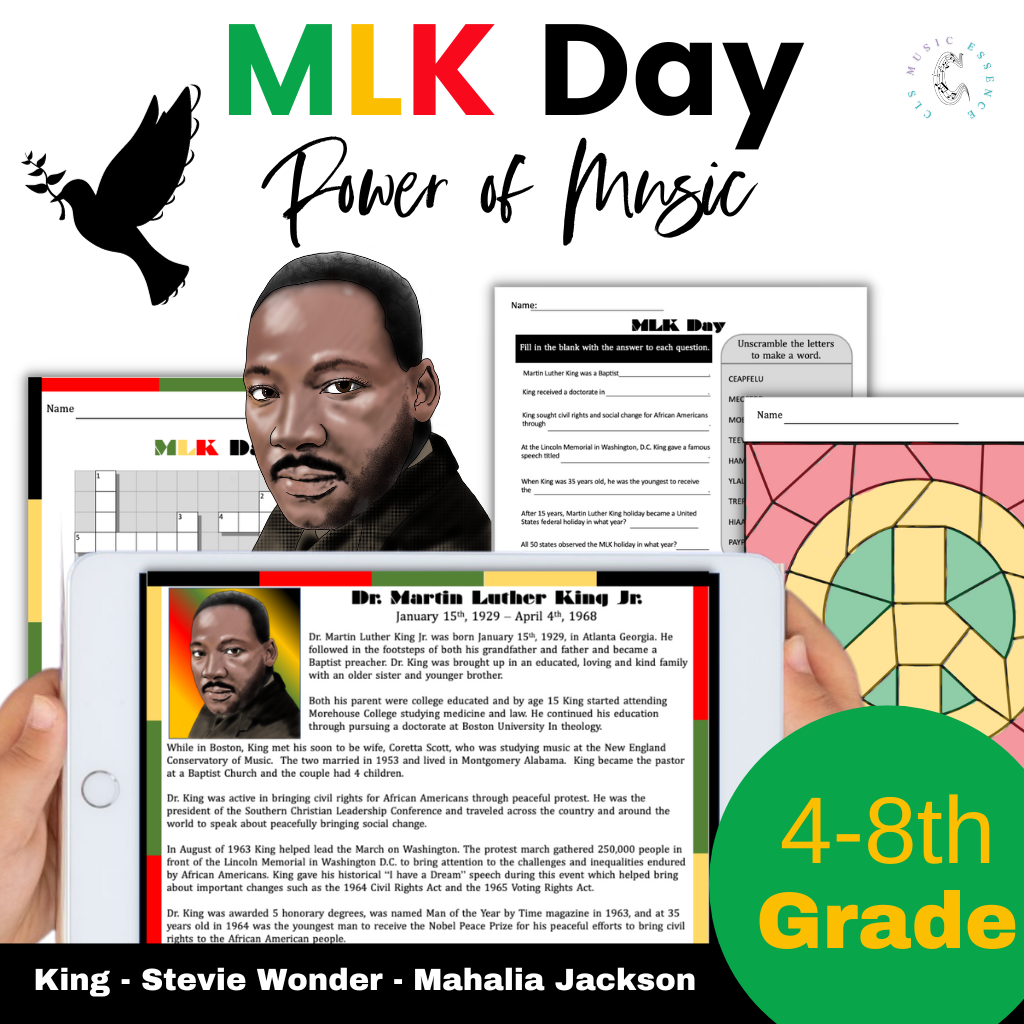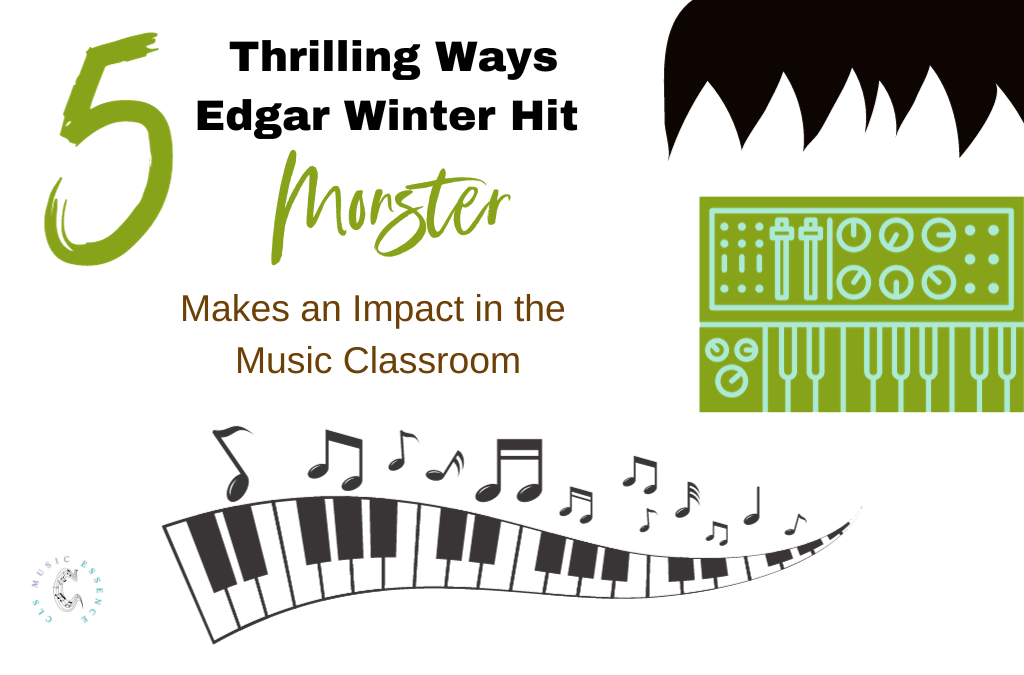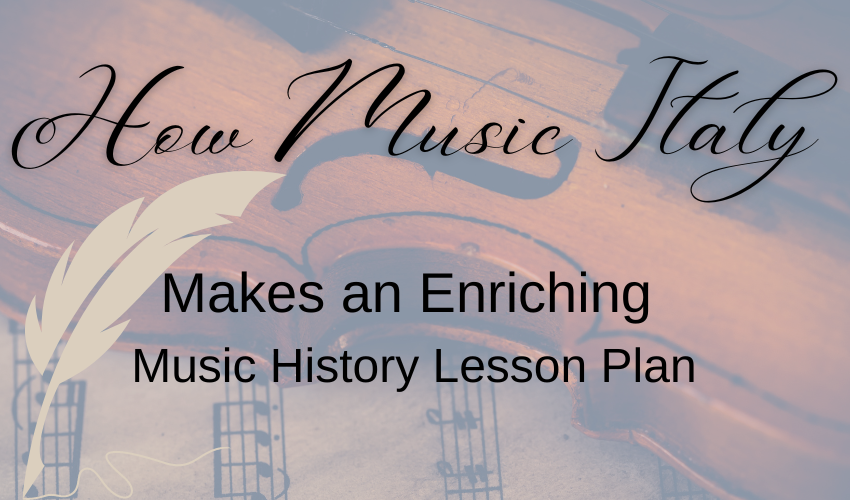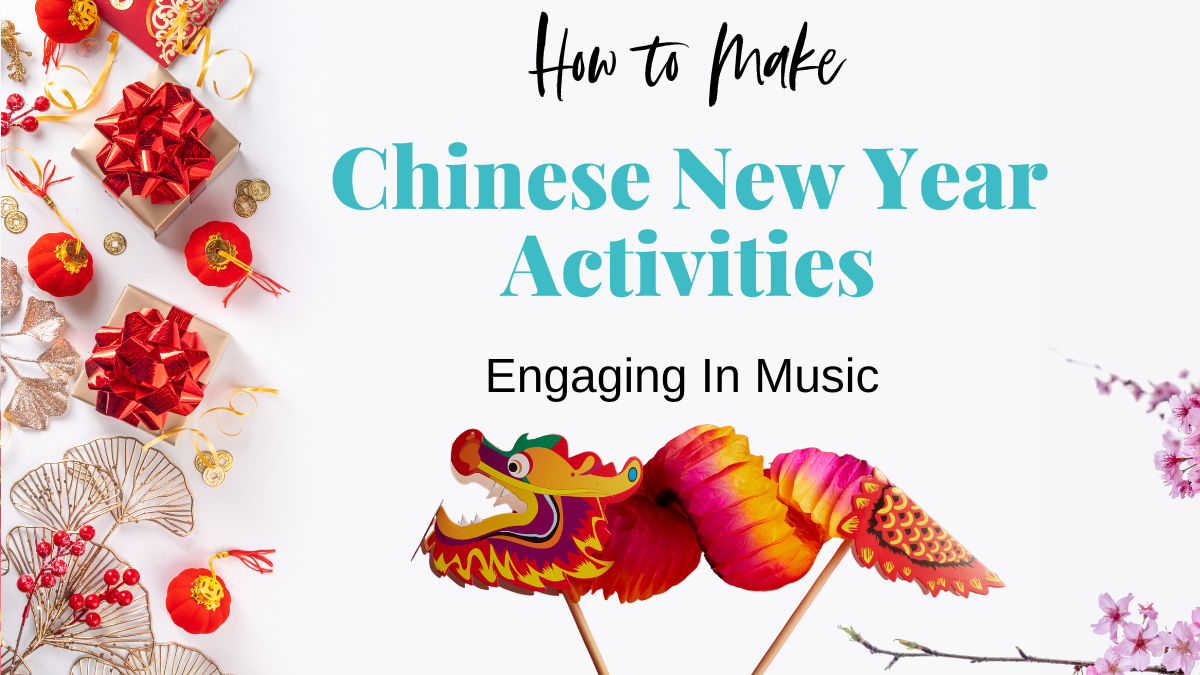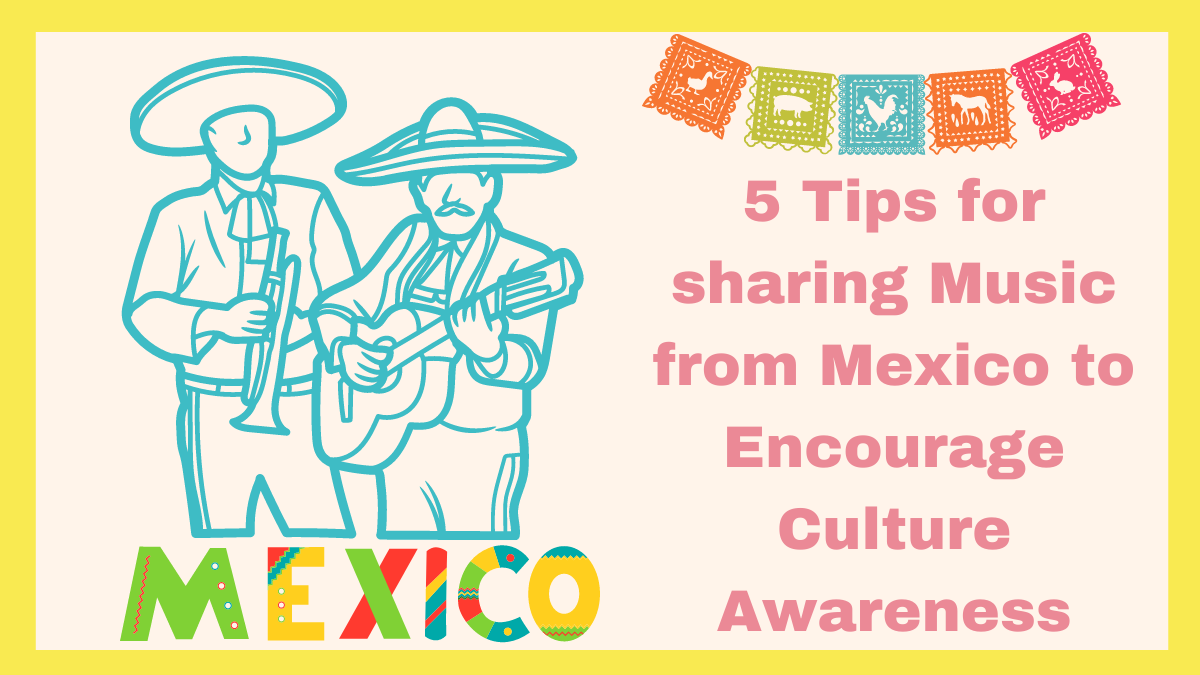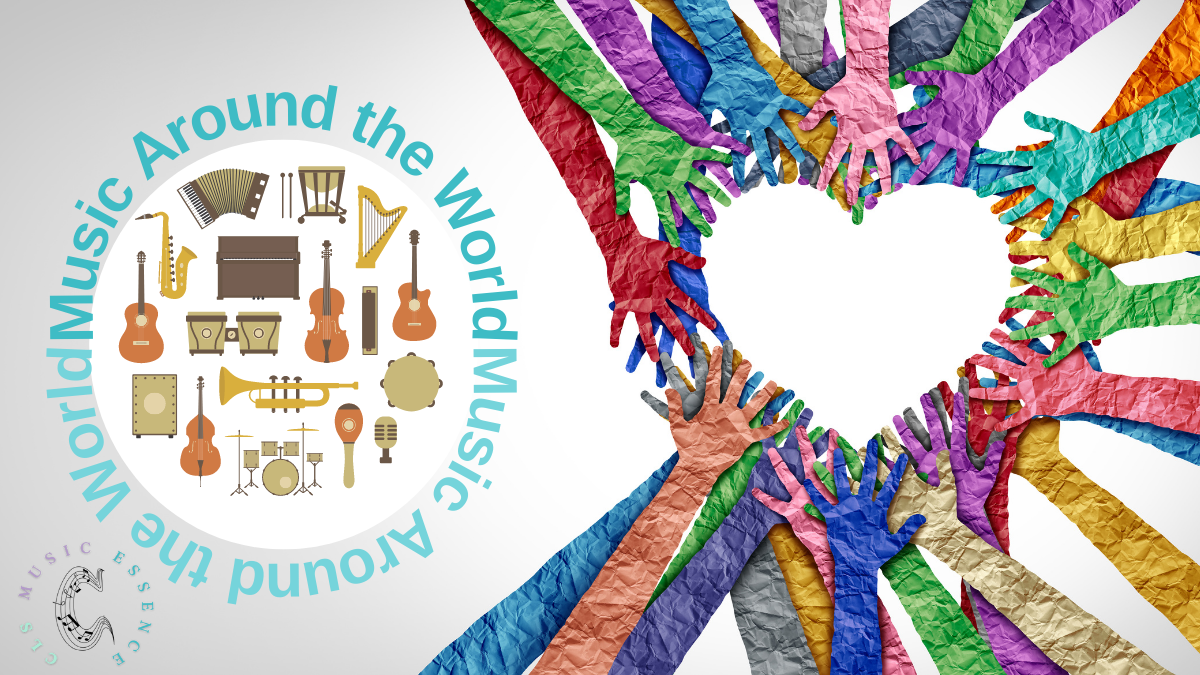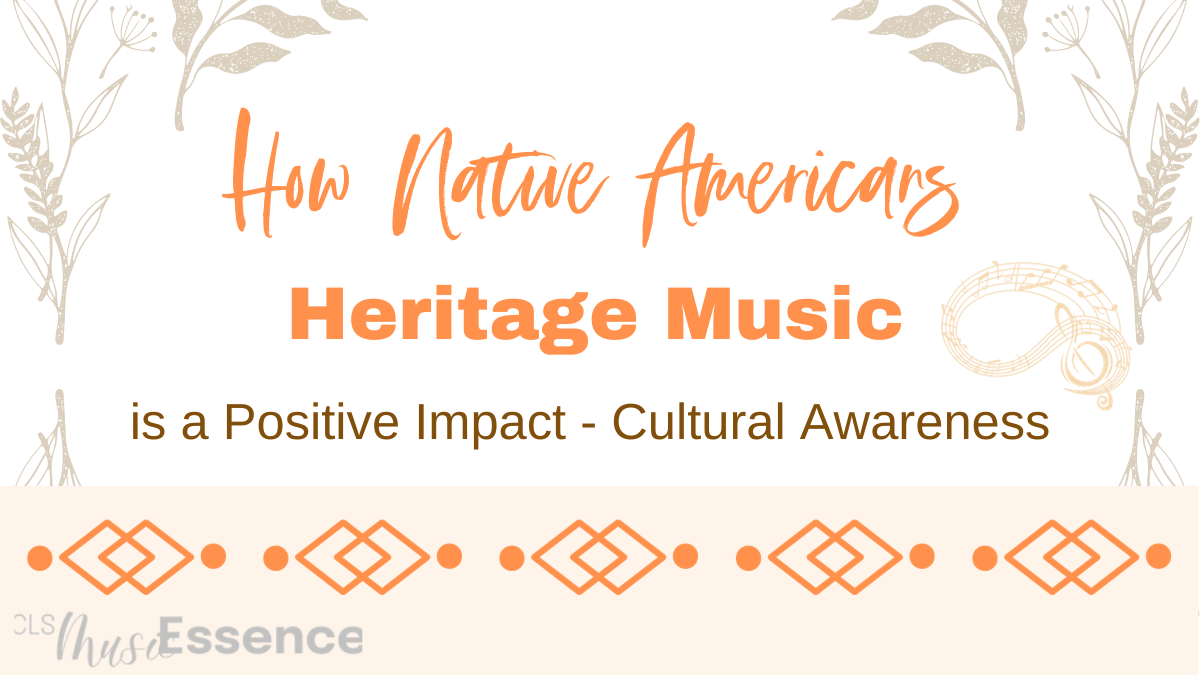How to teach Music for Civil Rights: See MLK’s Movement
Music for civil rights served as a powerful force during the 1960s civil rights movement, acting as a peaceful protest tool and playing a central role in marches and speeches led by Martin Luther King Jr. As music educators, we have a unique opportunity to share this rich history with our students, fostering an appreciation for the profound impact of music in social change.
This Martin Luther King Jr. Day, let’s delve into the diverse genres that fueled the movement and explore iconic pieces that encapsulate the struggles and triumphs of that era. Include the role of musical artists who supported the civil rights movement and display a timeline to the National Day of Service to remember Martin Luther King Jr.
Music for Civil Rights Genres
First, consider exploring the diverse genres that fueled the civil rights movement and Martin Luther King Day. From work and field songs dating back to the 17th century to the soul-stirring gospel and soulful blues, music for civil rights played a pivotal role in providing strength, unity, and inspiration for those fighting against injustice.
Introduce students to iconic pieces such as “We Shall Overcome,” “A Change Is Gonna Come,” and “Oh Freedom.” Music for civil rights helps students to view the historical context of the civil rights movement. The lyrics are a voice to the past and give an emotional connection to those who endured hardship and triumphant dreams.
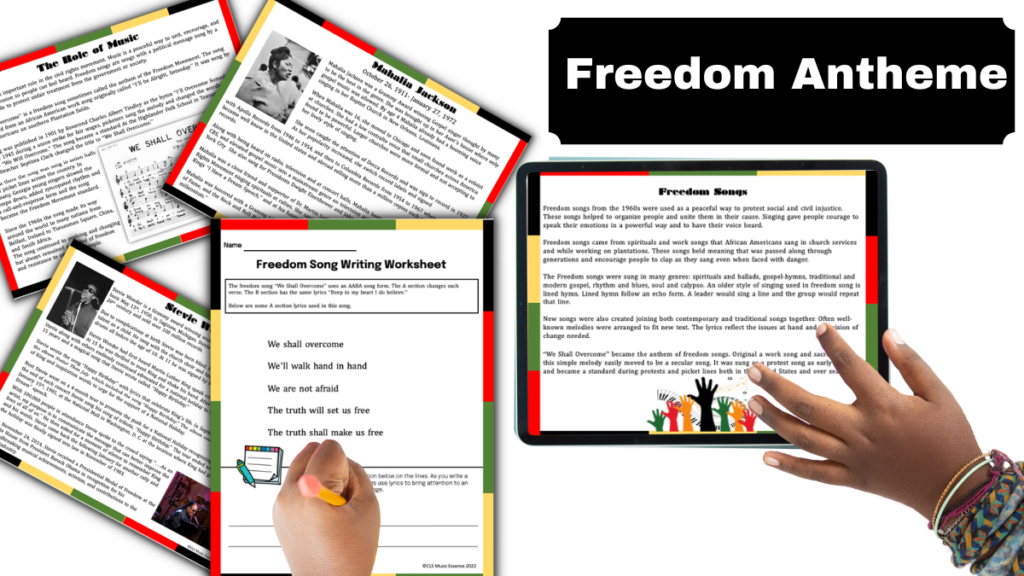

Encourage students to analyze the lyrics, melodies, and rhythms of music for civil rights. Examining words can foster a deeper understanding of the messages conveyed. Explore how singing became an expression that amplified the voice of the oppressed, providing courage for individuals to speak out and have their voices heard.
An important musical element of music for civil rights is the call and response form where a leader sings a verse and the chorus responds. This form encourages dialogue and leader improvisation. Students can compose new verses and accompany songs with percussion from drums, homemade instruments, or body percussion.
History of Martin Luther King Jr.
Incorporate the history of Martin Luther King Jr. to help students understand the significance of this civil rights leader and his impact on the movement. By connecting history with music, students gain a deeper appreciation for how music for civil rights was used to amplify King’s peaceful message, protesting the unfair treatment of people by the government and society.
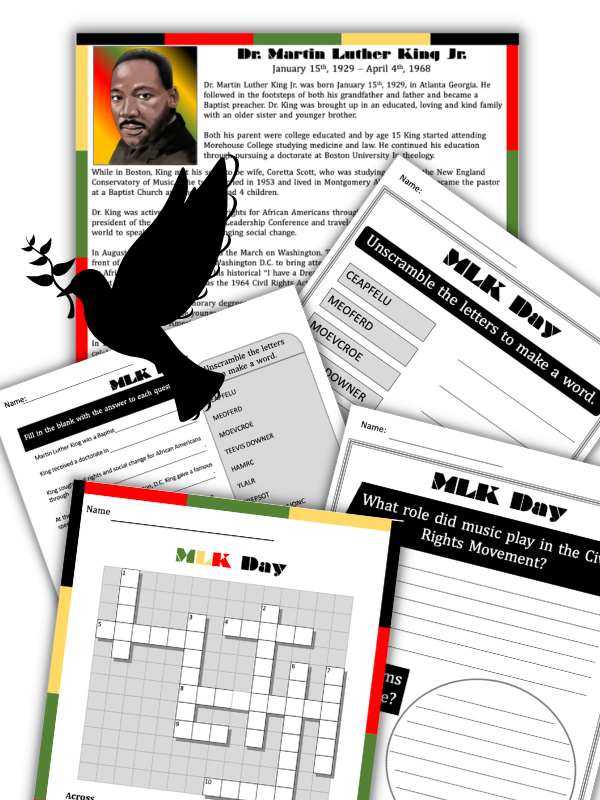

Gospel Singer
Introduce students to Mahalia Jackson, a Grammy award-winning gospel singer and close friend of Martin Luther King Jr. Explore her booming renditions of spirituals during civil rights movements, showcasing the powerful role of music for civil rights.
MLK Day Timeline: Music’s Role
Examine the timeline of creating a national holiday for Martin Luther King Day, highlighting the instrumental role music played by Stevie Wonder. Dive into a lyric analysis of Stevie’s song “Happy Birthday,” demonstrating how music for civil rights can influence social change and encourage the recognition of a national holiday. Stevie went on a 4-month tour to promote the push for a National Holiday and sang his tribute song at the end of every concert.
Expand the Music Lesson
Expand the lesson to explore how contemporary artists use their platforms to address social issues, emphasizing the ongoing relevance of music as a catalyst for change. This not only instills a sense of responsibility in students but also highlights the enduring impact of music in civil rights to fostering unity, understanding, and progress.
Perform a song for your local community as an act of service. Martin Luther King Day is the only federal holiday designated as a National Day of Service to encourage all Americans to volunteer and improve their communities.
Commemorating Martin Luther King Jr. Day alongside the exploration of music for civil rights empowers students to recognize the profound impact of music in fostering positive change. By intertwining the threads of history and music, we equip the next generation with a peaceful means to comprehend how music can give a voice to those typically ignored or overlooked. Together, let’s inspire the next generation to appreciate the transformative power of music and use it as a force for positive change in our society.
See other New Year music lesson ideas – Lunar New Year China.

